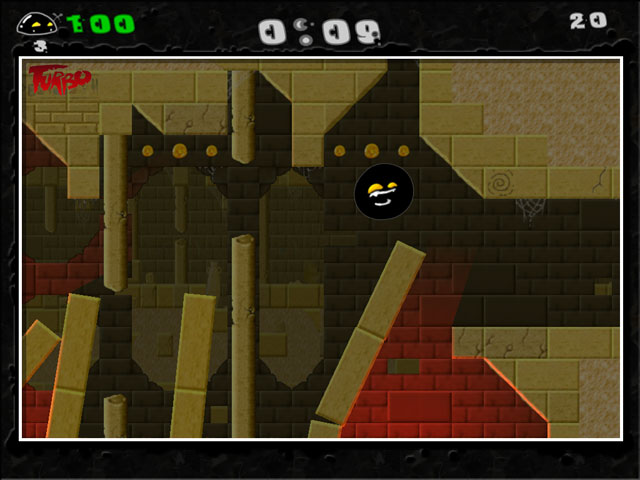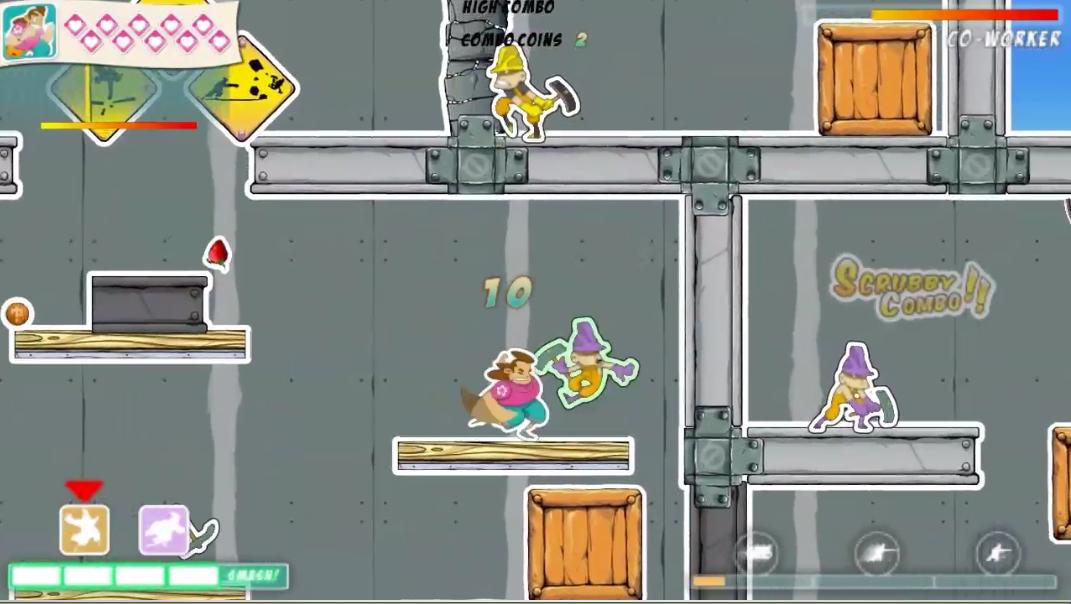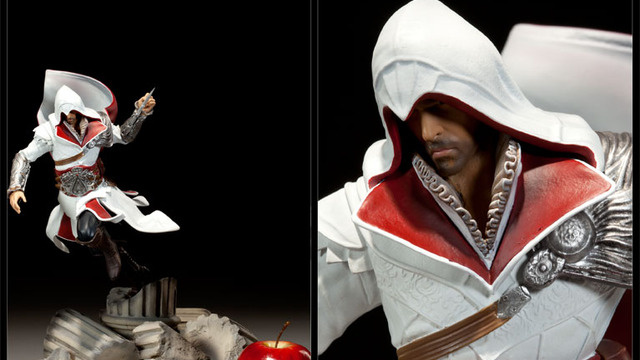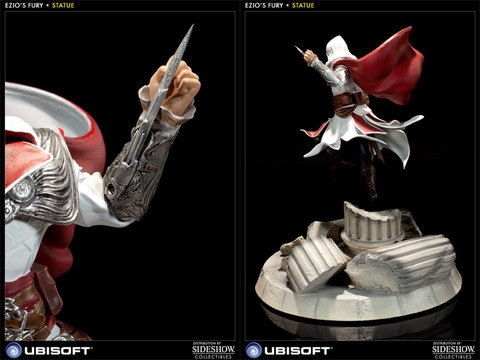Firefall is a unique sort of MMO that feels like a shooter without sacrificing elements that make it exciting to play. Mark Kern, CCO and CEO of Red 5, talks about player involvement in the world.
{video link no longer active}
Firefall is a unique sort of MMO that feels like a shooter without sacrificing elements that make it exciting to play. Mark Kern, CCO and CEO of Red 5, talks about player involvement in the world.
{video link no longer active}
The Uncharted series has become one of the most cinematic video games every created, taking inspiration from many classic movie sources. Here, some of the heads of Naughty Dog talk about the process of bringing Uncharted to life and push users to www.sony.com/experience.
{video link no longer active}
Catherine is seducing European gamers very soon, and she’s coming before that most romantic of holidays. You don’t want to cheat on her, however…
To promote the return of the Walking Dead to AMC, fans can participate in a new Facebook app that lets you experience being a zombie apocalypse survivor. By pulling profile data and pictures to create a custom video, the app shows fans the full blown action of being left behind. Starting in jail cell, you steal the keys and progress through the police station and must try and find a friend. Use everything in your power and experience what it’s like being a survivor where every step might be your last. Enable your webcam for the full blown experience.
While there are more opportunities to get started as an indie game developer these days, it’s still a hard row to hoe. Often getting a space for even all the developers to work together can be a significant challenge, and that’s where the GameSpy Indie Open House comes in. We talked with Drew Curby, Senior Director of Sales & Marketing at GameSpy Technology Group, about this program.
[a]list: Give me an overview of the program, why it was started, etc.
Drew Curby: GameSpy Technology Group has been around for a long time and we’ve worked with a number of developers to bring our tech to games. We were looking to bring our gaming technology to a larger part of the industry and one thing we identified that we wanted to focus on was indie development. So we have this program called GameSpy Indie Open House, where we thought it would be good to help them out with office space. We started two years ago and have seen two successful classes. We’ve helped them navigate the tough waters of releasing a game.
The big thing about indie development is that it’s an isolated exercise, whether you’re interacting with people exclusively online or you’re part of a team where you can’t meet up all the time. By granting them this office space, it allows people to interact in real time. Let’s say they have problems with their physics coding — in this situation, they can get instantaneous interaction with developers.
[a]list: Talk to me about some of the particular developers you’re working with.
Drew Curby: Alex Austin of Cryptic Sea is one the participants and he’s been doing this for a decade, and helped create Gish. He really understands game development and helps the teams answer questions that benefits people to really jumpstart their game development. Alex might have to test some things in their game, so he’s really good a picking things out and improving them.
 Gish
Gish
[a]list: Can you give some examples of how some individual developers benefit from the Indie Open House?
Drew Curby: I think Interabang Entertainment is a good example of a team that benefits from what we’re offering. They were all working on the same game and they were moving things forward, but this let them work together in the same place and they saw the benefit of having the office space. When you’re making decisions on the money as a start-up, it’s hard to decide to spend that on office space, but it’s a lonely thing to develop on your own. It also can be hard to self-evaluate your own game sometimes; you want to make sure of what’s good and fun and that there’s a constant feedback loop from other people.
That leads into the Demo Days. Being in the same location and having a feedback loop is critical to find out what’s working. However, that gets cranked up during the Demo Days where they can show them up to 300 employees of IGN and get feedback from people who are hardcore gamers and experts at the gaming industry — that really helps development of the game.
One of the things we don’t do is provide funding; I wish I could to be honest, because it’s hard to find the money. To that effect, we’re looking at partnerships with the incubator programs, so we provide what we can and work with other programs that might provide funding.
 Super Combo Man
Super Combo Man
[a]list: One of the things I remember about a documentary about game development is the fact that as you play a game more, you become an expert at it. Sure, jumping to a small platform and then instantly to a ledge might be second nature to you because you’ve been inside your game for dozens of hours, but to a neophyte they might die 50 times…
Drew Curby: People can forget how complicated game mechanics are – the real test of any game is seeing a gamer who hasn’t played it try it out. If something isn’t intuitive, people will be frustrated.
[a]list: Do you feel these Demo Days are also a good promotional tool for these developers, to get their name out there and their games noticed?
Drew Curby: I think that can’t be ignored. Providing exposure is really a great benefit to the teams. Since we have a deep relationship with members of the gaming industry, we can help along getting their games in front of the press. It’s really nice to be part of a program that lets games be displayed at GDC, so I think that’s a really key benefit. It’s not just letting the press know; we try to make the games known to the game development community at large.
Stay tuned for part 2!
_ _
Like indie titles? Can’t wait to go to GDC? Join the discussion on Facebook.
Turtle Beach announced that they are the number one gaming headsets/headphones company for 2011 according to data released by the NPD. The company led the field with 12 of the top 25 Gaming Headset SKUs in 2011, taking an average of 50 percent market share for 2011, with a 58 percent share in December.
“Turtle Beach created the console gaming headset category and we have been the leader ever since releasing our first Xbox headset more than five years ago. We are number one because our products are based on the principle that quality audio is a critical part of the video game experience and the market has responded,” said Bob Picunko, Chief Marketing Officer at Turtle Beach. “The latest NPD data has shown the strongest growth in the history of Turtle Beach and the category itself. The creation of a dedicated Gaming Headset category and our significant market share is a testament to the quality of our product and the desire of players to have a more immersive audio experience.”
Find out more about Turtle Beach in this exclusive two part interview at [a]list.
Activision has announced that it has 40 million monthly active users across all of its Call of Duty titles. Half of its active players come from Modern Warfare 3.
Activision revealed that 7 million users have signed up for the Call of Duty: Elite online service, and 1.5 million of them are paying members. They are currently working on Call of Duty: Elite 2.0 to support the 2012 release of the franchise.
Modern Warfare 3, Black Ops and Modern Warfare 2 are the top three games on Xbox Live, with Call of Duty: World at War and Call of Duty 4: Modern Warfare also in the top 20.
Sideshow Collectibles that feature Ezio from the Assassin’s Creed series jumping and prepared to strike. It’s an impressive piece at 14″ tall and 2000 pieces, and it will cost $375.



Recently, 10,000 people signed a petition to ask Lego Cuusoo to make an official Minecraft Lego set. After it passed the initial stage of review, it has now been confirmed as an official project.
The official Lego Minecraft set will be shown of at Lego World Copenhagen on February 16. The set’s model name is 21102 Lego Minecraft Micro World.
Spacetime Studios has announced that Pocket Legends and Star Legends: The Blackstar Chronicles have been played more than 100 million times. Users with iPhones play games for 14.7 hours per month while Android users play around 9.3 hours per month according to Nielsen research; the average Spacetime player spends 25.2 hours per month playing Legends titles alone.
“MMO games by their nature are more engaging and involved than most genres, but making that work in the mobile world is a very delicate balancing act,” said Cinco Barnes, Chief Vision Officer and co-founder, Spacetime Studios. “With each launch of a Legends title we make it our mission to innovate and it has become the largest, most successful mobile MMO franchise in the world.”